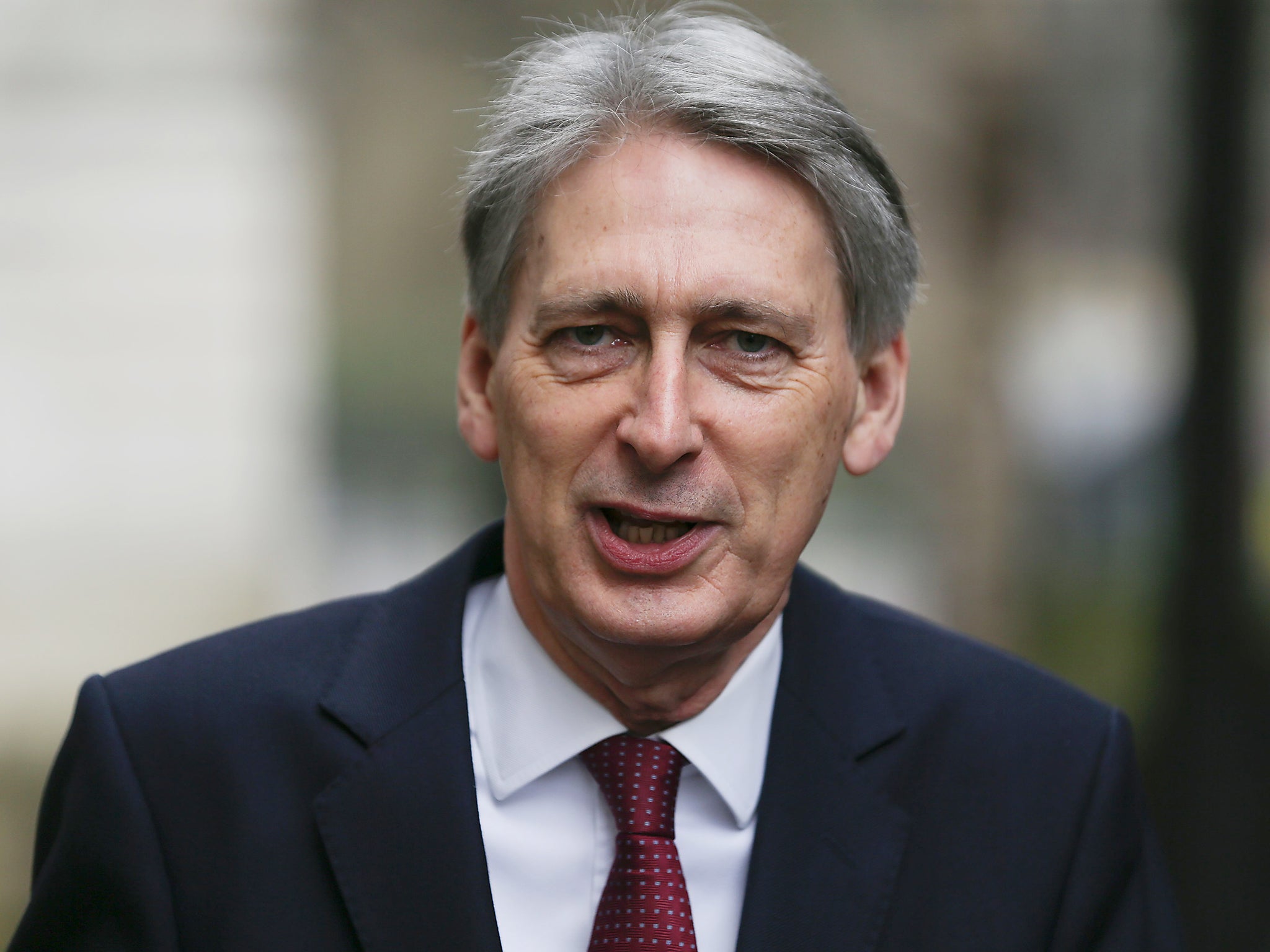This is what we can expect from Philip Hammond's first Budget – and it isn't good news
When Theresa May scrapped George Osborne’s plan to balance the nation’s books and run a surplus by 2020, it was greeted by some as ‘an end to austerity’. It was no such thing


When Conservative MPs presented Philip Hammond with their shopping list of demands for his first Budget next Wednesday, he warned them that any extra spending would have to be funded by either tax rises or spending cuts.
Among their proposals were alleviating the pain of business rates rises and more money for social care, the NHS, schools and the police. The Chancellor’s refrain, that Britain has an “eye-wateringly high debt” and annual deficit of more than £60bn, did not dampen the pressure for him to spend more.
When pressed, the basic instinct of Tory MPs is to cut spending rather than raise taxes. The reality is that we are going to have to swallow an unpalatable mixture of both for years. When Theresa May scrapped George Osborne’s plan to balance the nation’s books and run a surplus by 2020, it was greeted by some as “an end to austerity”. It was no such thing, merely a recognition that, with Brexit blowing a £59bn hole in the public finances, the Government’s sums could not possibly add up.
The Brexiteers tell us that everything will be wonderful once we leave the wretched EU, that immediate trade deals with every other country in the world will transform the UK overnight into a powerhouse economy. Fortunately, the Chancellor does not believe in such fairy stories. He is a realist who worries that the better than expected economic statistics since the referendum will not last. Hammond has set aside a £27bn cushion for bad times but will not want to use it next Wednesday. A big squeeze on the living standards of May’s target group “ordinary working families” is coming as wages fail to keep pace with inflation, compounded by a four-year freeze on working age benefits and cuts to universal credit. So the Chancellor will need to help them before a 2020 general election to keep May’s political strategy on track.
He will apply some sticking plaster in this Budget to social care, which could get up to £1bn, and announce business rates relief of perhaps £300m. But such emergency injections merely postpone the pain to another day. It is welcome that the Government’s long-term solution to the social care crisis could involve a levy on estates when people die, which the Tories shamelessly dubbed a “death tax” when Labour proposed it in 2010. We have had seven wasted years since.
But more action – and money – will be needed in the short term. With NHS and social care problems rightly in the headlines, I believe ministers have taken their eye off the ball in schools. “Flat cash” budgets, which do not keep pace with inflation, are hurting not working, with job cuts becoming a necessity for many schools. This could create a dangerous “toxic Tories” cocktail when combined with the never-ending pressures on health caused by the rising elderly population.

The squeeze on public services will continue well into the 2020s, when spending cuts or tax rises of about £40bn might be needed to clear the deficit.
Although Hammond might announce measures to bring in more tax from the growing army of self-employed, he could and should do more to raise taxes to fund public services. But May feels bound by the Tories’ 2015 election manifesto pledges not to increase income tax or national insurance, and to bring in tax cuts through higher personal allowances, giving most to those on middle and higher incomes. For May, the manifesto also means keeping until the next election the indefensible “triple lock” on the state pension, even though average pensioner incomes have overtaken those of younger adults.
Keeping promises is all very well. But May ignored the manifesto commitment to stay in the single European market and the Tories quickly shelved a promised £72,000 cap on an individual’s social care costs. If commitments like the deficit target can be dropped because of Brexit, then Hammond should recognise that unaffordable tax pledges have also been overtaken by events. He could also pull the plug on £1bn of cuts in inheritance tax that will help the wealthiest households rather than May’s “ordinary working families”.
Without such a rethink, the pressures on public services will become intolerable. The Prime Minister is unsympathetic, blinkered by her success at the Home Office, where she ordered the police to “do more with less” and crime still fell – in line with international trends.
She wants “reform” to raise patchy public sector performance to the level of the best. Yet austerity is reaching its limits in social care, hospitals and schools. May’s mantra should really be “more for less”, as we are going to pay higher taxes for worse services for years to come.
Join our commenting forum
Join thought-provoking conversations, follow other Independent readers and see their replies
Comments
Bookmark popover
Removed from bookmarks